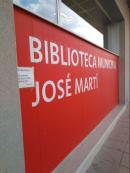- Martí returns to Zaragoza
In writings and speeches, he left clear evidence of the beauty of the Spanish land, the warm and passionate nature of his sons and the love for his people, a sister of his own – the source of our religion, language, customs and blood. José Martí, the National Hero of Cuba, celebrates next January 28 one hundred and sixty five years of existence.
One hundred and forty seven years after the young Martí walked on Spanish soil on February 1st, 1871, where he arrived as an exile to reside for some time in Madrid and later in Zaragoza, the capital of Aragón, stored in his memory as a "frank, fierce, faithful, without viciousness" place, Spain not only remembers him but also lifts him up.
The University of Zaragoza (UZ), the same one that took José Martí in, in May 1873, to graduate him in Civil and Canon Law in July 1874, and in Arts and Humanities in October of the same year, is today the largest center for higher education in the Valle del Ebro. The institution celebrated the 475th anniversary of its foundation in 2017 and did not miss the presence of a disciple of the universal stature of José Martí, whom it has called an illustrious graduate that Cuba appreciates with flying colors.
First, it was the awarding of the Gold Medal, the highest distinction given by this institution of high studies when it considers that there are strong reasons that warrant it. Another action the University has carried out is the publication of two books on Marti's stay and the handing over to Cuba of the two university degrees of our national hero who, at the time, could not collect them for not having the money available. A plaque has also been placed, some time ago, in the building where he lived on 13 Manifestación street.
This Zaragoza University, aware that its illustrious pupil is a universal figure, has been working on the restoration of his memory in recent years. It has created the first José Martí Professorship in Europe, which is located on its premises, aimed at collaboration between the University of Zaragoza and the University of Havana and which is also open to other Cuban institutions for collaboration between the humanities and the social sciences.


























































